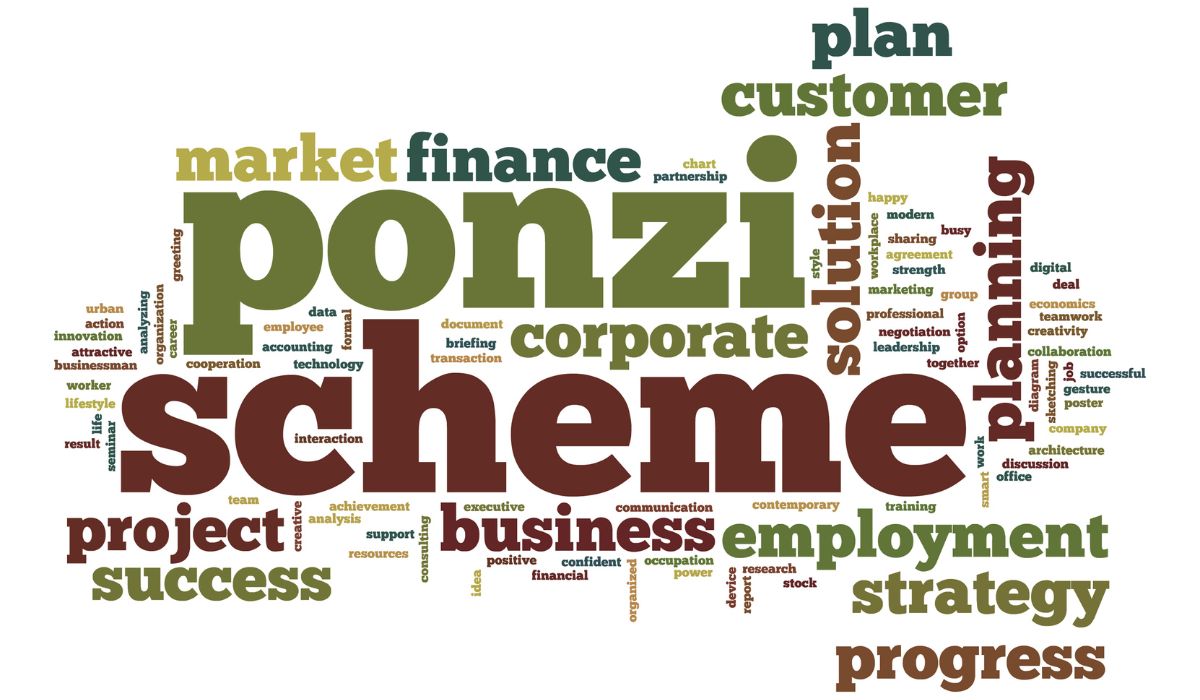Protect Your Investments: Spotting and Avoiding Pump and Dump Schemes
Pump and dump schemes are manipulative tactics used to artificially inflate stock prices, followed by a coordinated sell-off to profit at the expense of unsuspecting investors. In this article, we explore the nature of pump and dump schemes, their impact on the stock market, and provide essential information to help you safeguard your investments. By understanding these schemes and following the recommended steps, you can protect yourself from falling victim to pump and dump schemes and make more informed investment decisions.
Table of Contents
What are Pump and Dump Schemes?
Pump and dump schemes are fraudulent practices where individuals or groups artificially inflate the price of a stock or cryptocurrency by spreading false or misleading information. The fraudsters behind these schemes “pump” up the stock’s value by creating hype and excitement around it, often through aggressive marketing campaigns or misleading statements.
Once the stock price has reached a peak, the fraudsters quickly “dump” their shares, selling them at a profit while causing the stock price to plummet. This leaves unsuspecting investors with significant losses. Pump and dump schemes rely on manipulating market sentiment and taking advantage of investors who are unaware of the scheme’s fraudulent nature.
The Pump and Dump Process
The pump and dump process typically involves several stages.
- Promotion: Fraudsters promote a particular stock or cryptocurrency through various means, such as online forums, social media, email campaigns, or even direct messaging. They often make bold claims about the investment’s potential and use deceptive tactics to create a sense of urgency and excitement.
- Buying: As unsuspecting investors become influenced by promotional efforts, they start buying shares of the targeted stock or cryptocurrency. The increased demand drives up the price, creating the illusion of a rapidly growing investment opportunity.
- Dumping: Once the price has reached a peak and the demand is high, the fraudsters execute their plan to sell off their own shares, often at inflated prices. This sudden selling pressure causes the price to plummet rapidly, leaving other investors with significant losses.
During the process, fraudsters may employ various tactics to manipulate stock prices, such as spreading false information, creating artificial buying pressure, or engaging in coordinated trading activity. These tactics are intended to deceive investors and create an illusion of market activity and value.
It’s important for investors to be cautious and skeptical of any investment opportunities that exhibit signs of pump and dump schemes. Conducting thorough research, seeking advice from trusted financial professionals, and being wary of unsolicited investment advice can help protect against falling victim to these fraudulent practices.
Recognizing Warning Signs

Recognizing the warning signs of pump and dump schemes is crucial in protecting oneself from potential financial losses. Here are some common indicators to be aware of:
- Aggressive Promotions: Pump and dump schemes often involve aggressive promotional campaigns that exaggerate the investment’s potential and use high-pressure tactics to create a sense of urgency. Be wary of unsolicited investment advice or promotional messages that make unrealistic claims or promise guaranteed returns.
- Sudden Price Surges: One of the key characteristics of a pump and dump scheme is a rapid and significant increase in the price of a stock or cryptocurrency within a short period. Keep an eye out for sudden price spikes that are not supported by fundamental factors or market trends.
- Misleading Information: Fraudsters involved in pump and dump schemes may spread false or misleading information about the investment. This can include fake news articles, manipulated social media posts, or inflated performance reports. Always verify the information from reliable and independent sources before making any investment decisions.
- Thinly Traded Stocks: Pump and dump schemes often target low-volume and thinly traded stocks or cryptocurrencies. The low liquidity makes it easier for fraudsters to manipulate the price by buying and selling a large volume of shares, causing significant price fluctuations.
To distinguish between legitimate market trends and potential pump and dump activities, it’s essential to conduct thorough research, analyze the investment’s fundamentals, and consider the broader market conditions. It’s advisable to consult with trusted financial advisors or professionals who can provide objective insights and guidance.
Remember, if an investment opportunity seems too good to be true or exhibits multiple warning signs of a pump and dump scheme, it’s best to exercise caution and avoid getting involved.
Conducting Due Diligence
Conducting due diligence is crucial when evaluating investment opportunities to protect yourself from pump and dump schemes. Here are some strategies to help you conduct thorough research and identify potential red flags:
Analyze Company Fundamentals
Start by researching the company’s financial health, business model, and management team. Review their financial statements, annual reports, and regulatory filings to gain insights into their revenue, profitability, and growth prospects. Look for any inconsistencies or irregularities that may indicate fraudulent activity.
Evaluate Market Conditions
Consider the broader market conditions and trends that may impact the investment. Assess factors such as industry dynamics, competition, and regulatory environment. A sudden surge in the price of a stock or cryptocurrency without any significant news or market developments could be a potential warning sign of a pump and dump scheme.
Check Regulatory Compliance
Verify if the company and its offerings are compliant with relevant regulations and licensing requirements. Look for any disciplinary actions or enforcement actions taken against the company by regulatory authorities. Ensure that the investment opportunity aligns with legal and regulatory standards.
Conduct Background Checks
Research the company’s reputation, track record, and history of the individuals involved. Check for any past involvement in fraudulent activities or legal disputes. Look for credible sources of information, including reputable news outlets, financial websites, and regulatory databases.
Seek Independent Advice
Consider seeking advice from independent financial advisors or professionals who are knowledgeable in the specific industry or market. They can provide objective insights and help you evaluate the investment opportunity from a more informed perspective.
Remember, conducting due diligence is an ongoing process, and it’s important to stay updated on the latest developments and news related to the investment. By thoroughly researching and analyzing investment opportunities, you can make more informed decisions and reduce the risk of falling victim to pump and dump schemes.
Regulatory Measures and Enforcement
Regulatory bodies play a crucial role in detecting and combating pump and dump schemes to protect investors and maintain the integrity of the financial markets. Here are some key points regarding regulatory measures and enforcement against pump and dump schemes:
- Securities and Exchange Commission (SEC): In the United States, the SEC is the primary regulatory body responsible for enforcing securities laws and regulations. The SEC investigates and takes legal action against individuals and entities involved in pump and dump schemes. They have the authority to impose penalties, fines, and sanctions on violators.
- Market Surveillance: Regulatory bodies, such as stock exchanges and financial market regulators, employ advanced surveillance systems to monitor trading activities and detect potential market manipulation. They analyze trading patterns, volume spikes, and other indicators to identify suspicious trading activities associated with pump and dump schemes.
- Investor Education: Regulatory bodies also focus on educating investors about pump and dump schemes and warning them about the associated risks. They provide resources, guidelines, and investor alerts to raise awareness and empower investors to make informed decisions.
- Legal Consequences: Perpetrators of pump and dump schemes can face severe legal consequences. This may include civil charges, criminal charges, fines, disgorgement of ill-gotten gains, and even imprisonment. The penalties aim to deter fraudulent activities and protect investors from financial harm.
- International Cooperation: Pump and dump schemes are not limited to a single jurisdiction, and they often involve cross-border transactions. Regulatory bodies collaborate with international counterparts to share information, coordinate investigations, and prosecute offenders. This international cooperation strengthens the effectiveness of regulatory measures against pump and dump schemes.
It’s important to note that regulatory measures and enforcement actions are aimed at deterring pump and dump schemes and holding perpetrators accountable. However, investors should still exercise caution, conduct due diligence, and make informed investment decisions to protect themselves from potential scams and market manipulation.
Investor Protection and Self-Defense
Investor protection and self-defense are essential in safeguarding one’s investments and minimizing the risk of falling victim to pump and dump schemes. Here are some key strategies for protecting yourself as an investor:
Education and Awareness
Stay informed about investment principles, market dynamics, and common fraud schemes like pump and dump. Educate yourself on how to identify warning signs and conduct thorough research before making investment decisions.
Risk Management
Practice prudent risk management by diversifying your investment portfolio. Spread your investments across different asset classes, sectors, and geographical regions. This can help mitigate the impact of potential losses from any single investment.
Due Diligence
Conduct thorough due diligence on companies and investment opportunities. Analyze financial statements, business models, competitive landscapes, and regulatory compliance. Verify the credentials and track records of promoters, advisors, and executives involved in the investment.
Independent Research
Rely on independent research and reputable sources of information. Avoid making investment decisions solely based on promotional materials, rumors, or tips from unknown sources. Take the time to verify and cross-reference information before committing your funds.
Long-Term Perspective
Adopt a long-term investment approach and avoid being swayed by short-term market fluctuations or hype. Genuine investment opportunities typically offer sustainable growth and value over time, rather than quick and unrealistic gains promised by fraudulent schemes.
Consult Professionals
Seek advice from licensed financial advisors or professionals who have expertise in the specific investment area you are considering. They can provide valuable insights, guide your investment strategy, and help identify potential risks.
Trust Your Instincts
Trust your gut instincts when something seems too good to be true or raises suspicions. If an investment opportunity sounds overly hyped, lacks transparency, or involves high-pressure sales tactics, it’s crucial to proceed with caution or avoid it altogether.
Remember, protecting yourself as an investor requires ongoing vigilance, critical thinking, and a commitment to staying informed. By implementing these strategies, you can enhance your investment defense and reduce the likelihood of falling prey to fraudulent schemes like pump and dump.
Reporting and Seeking Recourse
If you have been a victim of a pump and dump scheme or suspect fraudulent activity, it is important to take appropriate steps to report the incident and seek recourse. Here are some actions you can take:
- Report to Regulatory Authorities: Contact your country’s financial regulatory authority, such as the Securities and Exchange Commission (SEC) in the United States or the Financial Conduct Authority (FCA) in the United Kingdom. Provide them with detailed information about the scheme, including the individuals or entities involved, any evidence you have, and the impact it had on your investments.
- File a Complaint: Submit a formal complaint to the regulatory authority, providing all relevant information and supporting documentation. Be prepared to provide details of the transactions, communications, and any other evidence that can assist in the investigation.
- Seek Legal Assistance: Consult with a qualified securities attorney or seek legal advice to understand your rights and options. They can help you assess the legal remedies available to you, such as filing a civil lawsuit against the perpetrators to recover your losses.
- Preserve Evidence: Preserve all relevant evidence related to the pump and dump scheme. This includes copies of communication, transaction records, account statements, and any other documents that can support your case.
- Join Class Action Lawsuits: If a class action lawsuit is initiated against the individuals or entities involved in the pump and dump scheme, consider joining as a plaintiff. Class action lawsuits consolidate the claims of multiple investors, increasing the chances of recovery.
- Stay Informed: Keep yourself updated on the progress of any regulatory investigations, legal actions, or class action lawsuits related to the pump and dump scheme. This can help you stay informed about potential recovery opportunities or settlement distributions.
- Financial Counseling: Seek financial counseling or guidance to help you manage the impact of the fraud on your financial situation. A professional financial counselor can provide assistance in rebuilding your investment portfolio and implementing risk management strategies.
Remember, it is crucial to take action promptly to maximize your chances of seeking recourse. By reporting the scheme and seeking legal assistance, you contribute to the efforts of regulatory authorities in cracking down on fraudulent activities and protecting other investors.
Preventing Pump and Dump Schemes: Tips and Best Practices
Protecting your investments from pump and dump schemes requires vigilance and informed decision-making. Here are some tips and best practices to help you prevent falling victim to such fraudulent activities:
- Conduct Independent Research: Always conduct thorough research before making any investment decisions. Look into the company’s financials, management team, industry trends, and market conditions. Rely on reputable sources of information and avoid making investment decisions based solely on promotional materials or unsolicited tips.
- Beware of Unsolicited Investment Advice: Be cautious of unsolicited investment advice received through emails, social media, or cold calls. Pump and dump schemes often rely on aggressive promotions and promises of quick profits. Trust your own judgment and seek advice from qualified financial professionals before making investment decisions.
- Analyze Trading Volume and Price Patterns: Monitor trading volume and price patterns of stocks you are interested in. Sudden surges in trading volume or significant price fluctuations without any material news or events could be indicative of potential manipulation. Exercise caution and investigate further before making investment decisions.
- Diversify Your Investments: Diversification is a key strategy to mitigate risks. Spread your investments across different asset classes, sectors, and geographical regions. By diversifying, you reduce the impact of any single investment or fraudulent scheme on your overall portfolio.
- Stay Informed and Follow Reputable Sources: Stay updated on financial news, market trends, and regulatory developments. Follow reputable financial news outlets and subscribe to official sources such as regulatory authorities’ newsletters or alerts. This will help you stay informed about potential risks and fraud warnings.
- Consult with Financial Professionals: Seek advice from qualified financial professionals, such as financial advisors or investment consultants, who have a fiduciary duty to act in your best interest. They can provide you with personalized guidance based on your financial goals and risk tolerance.
- Trust Your Instincts: If an investment opportunity sounds too good to be true or raises doubts, trust your instincts and exercise caution. Be skeptical of high-pressure tactics, guarantees of extraordinary returns, or opportunities that are exclusively available to a select group of individuals.
- Educate Yourself and Others: Stay informed about common investment scams, including pump and dump schemes, and educate yourself about their characteristics and warning signs. Share this knowledge with friends, family, and colleagues to help them protect their investments as well.
By adopting these strategies and staying vigilant, you can significantly reduce the risk of falling victim to pump and dump schemes. Remember, ongoing education and awareness are crucial in safeguarding your investments and financial well-being.
Next Step!
Take a proactive step in protecting yourself and your investments by joining the fraud awareness training offered by Pillar Support. Our training programs provide valuable insights into various types of financial fraud, including pump and dump schemes, and equip you with the knowledge and skills to identify and prevent such scams.
By participating in our fraud awareness training, you will gain a deeper understanding of the tactics used by fraudsters, learn how to recognize red flags, and develop effective strategies to safeguard your investments. Our expert instructors will guide you through real-life case studies, provide practical tips, and answer your questions to enhance your fraud prevention capabilities.
Don’t wait until it’s too late. Stay ahead of financial fraud and take control of your financial future. Join our fraud awareness training today and become a more informed and empowered investor. Together, we can create a safer investment environment for all. Contact Pillar Support now to learn more about our training programs and how to enroll.
Frequently Asked Questions
What is a Pump and Dump Scheme an Example of?
A pump and dump scheme is an example of stock market manipulation. It involves artificially inflating the price of a stock through false or misleading information and then selling the stock at the inflated price to make a profit.
How Does a Pump and Dump Scheme Work?
In a pump and dump scheme, fraudsters typically promote a stock, often through aggressive marketing tactics and false information, to create a buzz and generate buying interest. As more investors buy the stock, the price increases. Once the price reaches a certain level, the fraudsters sell their shares, causing the price to plummet. This leaves other investors, who were influenced by the artificial hype, with significant losses.
Are Pump and Dump Schemes Illegal?
Yes, pump and dump schemes are illegal in most jurisdictions. They involve fraudulent activities, such as disseminating false information and manipulating stock prices for personal gain. These schemes violate securities laws and regulations.
How Do You Recognize a Pump and Dump Scheme?
Recognizing a pump and dump scheme can be challenging, but there are some common signs to watch out for. These include sudden price surges without significant news or fundamental changes, aggressive promotions and marketing campaigns, and misleading information or false claims about the stock’s potential. Conducting thorough research, analyzing company fundamentals, and being skeptical of investment opportunities that seem too good to be true can help in identifying potential pump and dump schemes.






